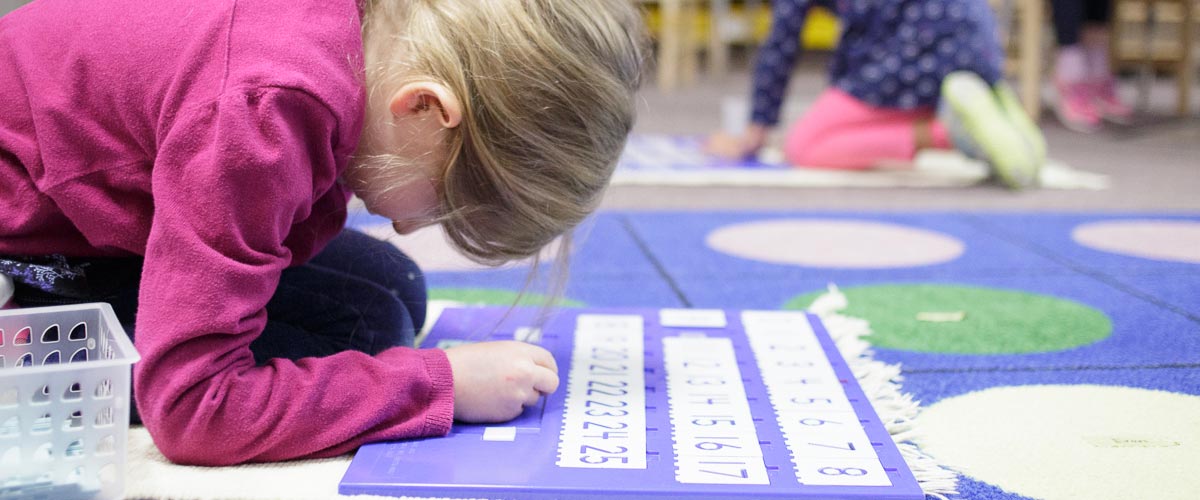
About Montessori
Montessori
The Montessori philosophy and methodology has influenced much of what is considered “best practice” in our elementary schools today. This includes a focus on child-centred, developmentally appropriate and authentic concrete learning experiences. Montessori education fosters the development of an inquiring mind and an appreciation for one’s place in the physical environment, and one’s responsibility as a citizen of the world.
Montessori Method
The Montessori approach offers a broad vision of education. It is designed to help students with their task of inner construction as they grow from childhood to maturity. It draws its principles from the natural development of the child and its flexibility guides each student in his/her emotional, social and intellectual growth.
Montessori Teacher
The role of a Montessori teacher is that of an observer whose ultimate goal is to intervene less and less as the child develops. Eagle Harbour Montessori teachers create a positive, cooperative atmosphere in the classroom and encourage the students to develop self-confidence and inner discipline
The Montessori Elementary Curriculum
The elementary Montessori curriculum encompasses language, math, geometry, physical geography, cultural geography, history, botany, zoology, matter and astronomy. The elementary work frequently involves research, discussion, and large-scale projects.
The Montessori Classroom
Learning in the Montessori classroom takes place through the senses. Within the child’s reach are specialized self-correcting sensorial materials. Many of these materials and activities are designed to allow for self-correction, a feature that leads towards the child’s independence. Children are provided with opportunities to learn through exploring the natural environment.